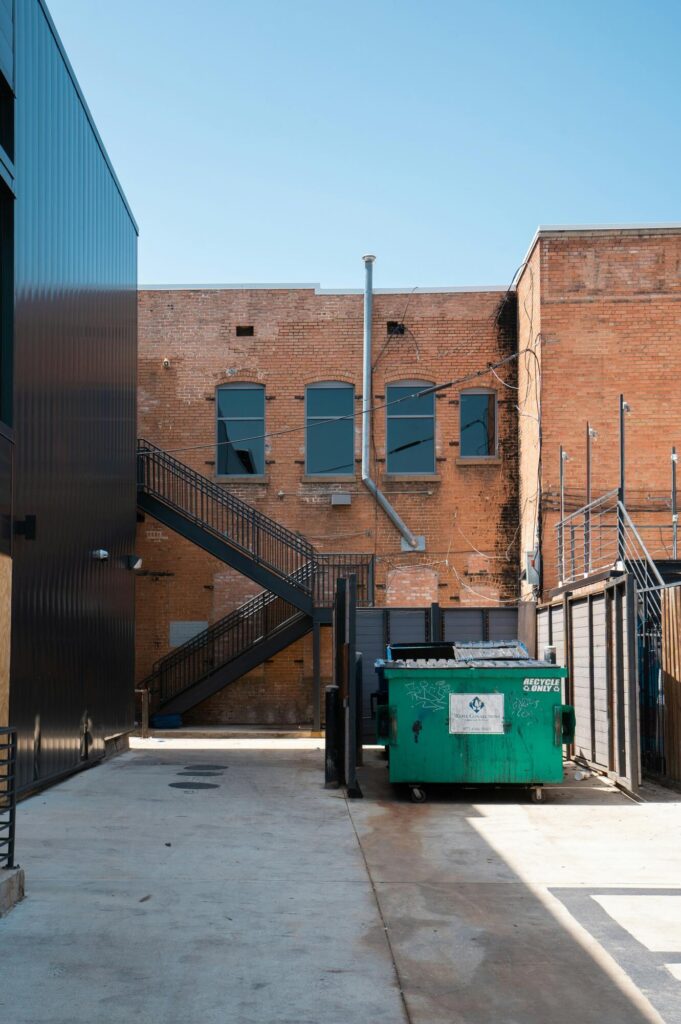When managing a home renovation project, construction site cleanup, or even a seasonal cleanup, one of the most critical tasks is debris removal.
A proper debris removal solution ensures that waste is efficiently managed and disposed of, minimizing potential hazards and keeping your area organized. Whether you’re clearing out a home, a construction zone, or after a natural disaster, choosing the right debris removal option is essential.
This guide will walk you through everything you need to know about finding a suitable solution, including options like dumpster rentals and more.
Why You Need a Debris Removal Solution
Debris removal isn’t just about keeping things clean; it’s about safety, efficiency, and adhering to local regulations. Construction and demolition debris, for example, can include heavy and hazardous materials like:
- wood
- metal
- glass
- nails
Improper disposal can lead to fines, accidents, or environmental harm. A debris removal solution helps you avoid these problems, offering a systematic way to handle:
- trash
- recyclables
- hazardous materials
Common Types of Debris and Waste You Might Encounter
The type of debris you need to remove will vary depending on your project. It’s essential to understand the different types of waste to determine the best removal solution. Here are some of the common types of debris:
Construction Debris
This includes everything from wood and concrete to bricks, drywall, and insulation. These materials are often bulky and require specialized disposal to prevent harm to the environment.
Yard Waste
Fallen branches, grass clippings, leaves, and other natural debris are often found during landscaping projects or after storms. Yard waste is typically easier to remove than construction debris but still needs to be handled properly.
Household Junk
During a decluttering or home renovation project, you may accumulate old furniture, appliances, or boxes of unwanted items. It’s important to properly dispose of these items to avoid clutter and potential pests.
Hazardous Waste
Items like old paint, chemicals, or certain electronics fall into this category. Special handling and disposal methods are required to ensure that these materials don’t cause environmental damage.
Disaster Debris
After a storm, flood, or fire, the amount of debris can be overwhelming. You may encounter a mixture of household junk, fallen trees, and hazardous materials. Disaster debris requires a more comprehensive cleanup and removal strategy.
Choosing the Right Debris Removal Solution
Now that you know the types of debris you’re dealing with, let’s dive into the best debris cleanup solutions. There are several options depending on your needs, budget, and the scale of your project.
Dumpster Rentals: A Flexible Option for Large Cleanups
If you’re handling a significant amount of debris, such as during a home renovation or large construction project, renting a dumpster is one of the most efficient solutions. Dumpster rentals come in a variety of sizes, depending on the scale of your project, you can choose a size that suits your needs.
A dumpster rental is great for projects that generate a lot of waste over an extended period. You can keep the dumpster on-site for a few days or even weeks, depending on the rental terms. This flexibility allows you to continue removing debris as your project progresses.
Hauling Services: Let Professionals Do the Work
For those who prefer to leave the debris removal to the experts, hiring a hauling service might be the best solution. Hauling companies typically send a team to remove debris from your location, saving you time and effort. These services are ideal for one-time cleanups, such as after a major event or disaster, or when the amount of debris is too much for a DIY project.
Hauling services are also a good option if you have limited space to place a dumpster. The professional team can quickly remove debris and take it to the appropriate disposal facilities.
Recycling Centers: Disposing of Materials Responsibly
When choosing a debris removal solution, it’s important to consider the environmental impact. Many types of waste, such as metals, plastics, and glass, can be recycled. Instead of sending everything to a landfill, look for a recycling center that can process the materials for reuse.
If you’re handling construction debris or yard waste, check with local recycling centers for specific guidelines on what they accept. Some facilities even specialize in construction and demolition waste, making it easier to dispose of materials like concrete, wood, and drywall.
Composting: A Green Option for Yard Waste
For yard waste like leaves, branches, and grass clippings, composting is an eco-friendly option. If you have a compost bin or access to a community composting facility, you can turn your organic waste into nutrient-rich compost for your garden or lawn.
If you don’t want to handle composting yourself, some debris removal services offer yard waste disposal and will transport it to a local composting facility for you.
Hazardous Waste Disposal: Handling Dangerous Materials Safely
Certain types of debris, such as old paint, chemicals, batteries, and electronics, require special handling. These materials are hazardous waste. Improper disposal can harm the environment and health.
To dispose of hazardous materials safely, check local waste agencies for disposal guidelines and center locations. Some cities also offer periodic hazardous waste collection events where residents can safely dispose of dangerous materials.
Cost Considerations for Debris Cleanup Solutions
The cost of debris removal can vary significantly depending on the solution you choose. Here are some factors that will impact the cost:
Type of Debris
Harder-to-dispose materials (like construction debris or hazardous waste) may cost more to remove.
Volume of Debris
The larger the amount of debris, the more you’ll pay. Dumpster rentals often charge based on the size of the container and the weight of the waste.
Location
Costs can vary by region, especially if you’re renting a dumpster or hiring a junk hauling service. Local laws and regulations also affect prices.
Service Type
DIY options like dumpster rentals are usually cheaper than full-service junk hauling. The latter includes labor and transport.
It’s a good idea to get multiple quotes from different providers to ensure you’re getting the best deal for your specific needs.
Choosing the Right Debris Removal Solution
Finding the right debris removal solution depends on your project’s size, the type of waste involved, and your budget. Whether you rent a dumpster, hire a hauler, or recycle, ensure all waste is disposed of safely and efficiently.
A reliable debris removal solution will not only keep your space clean but also contribute to a healthier environment.
Got questions? We’ve got answers! Check out our blog for loads of interesting and helpful content today!







